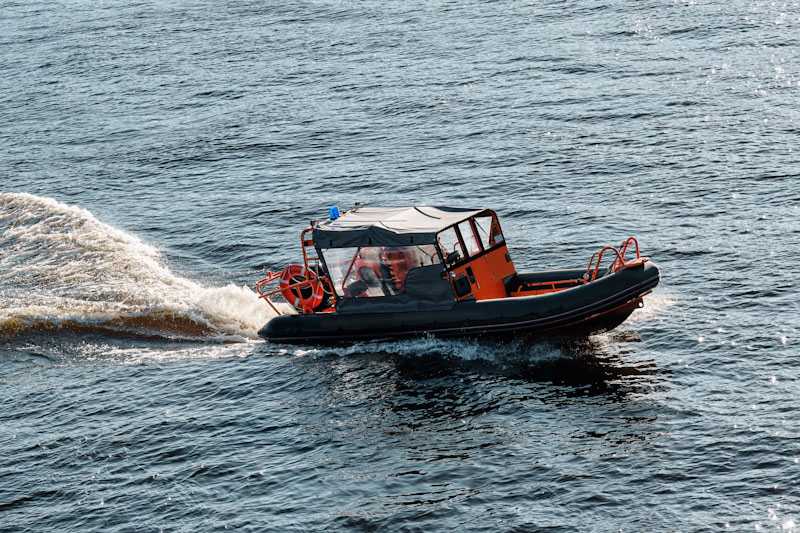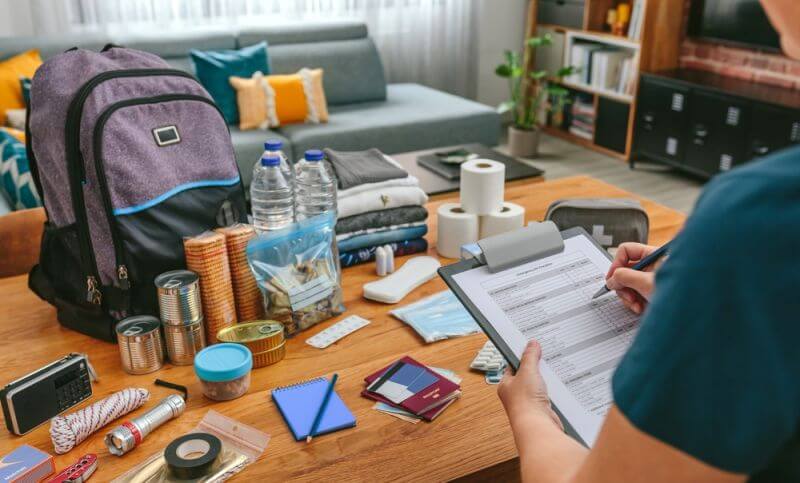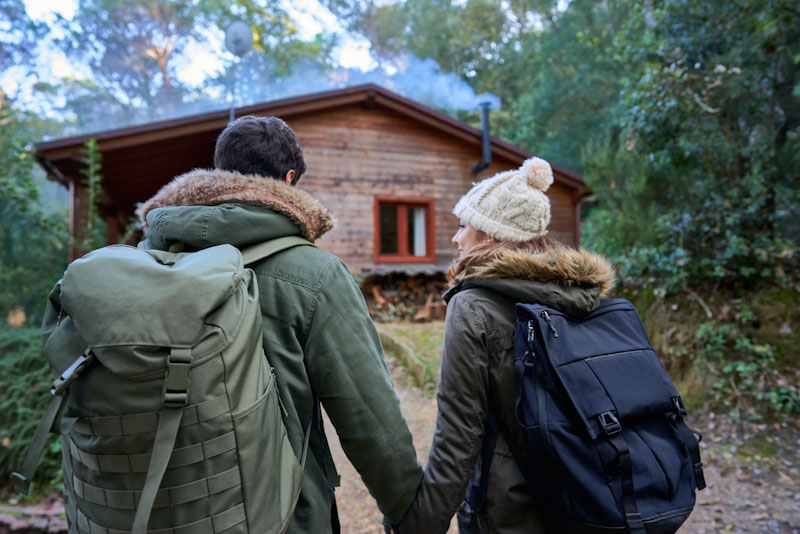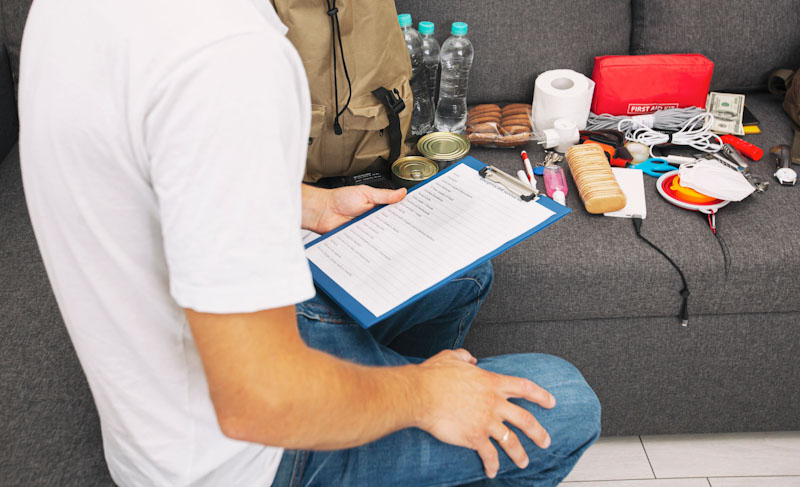I remember back when I was just a kid, reading stories of people who were stranded and built a raft to escape and get back to civilization. Later I read a story in the National Geographic about a teenage boy who sailed around the world on his own, taking five years to make the trip. Having grown up around boats, the idea of using a boat as a means of escape has always appealed to me. Granted, I’ve never lived on a river, lake or oceanfront, where a boat would be a practical bug out vehicle; but that hasn’t dampened the appeal of the idea.
Where I live now, I’m just a couple of miles from a lake. While the side of the lake near us is populated, it’s a mere eight miles, diagonally across the lake, to a much more secluded area, with dense forest. There’s also a fair-sized island in the middle of the lake, slightly north of that line of travel, which is both forested and uninhabited. Should I need a quick bug out from my small town, heading across that lake would make a lot of sense.
Of course, that means having a boat to bug out with; something I currently don’t have. That doesn’t mean all is lost; it just means that I have one more project to do, if I’m going to make that a serious option for my survival.
Let’s look at a couple of options where boats would be an excellent option for bugging out.
Bugging Out Across the Ocean
Probably the best possible boat bug out is taking off, out across the ocean. There are people (mostly retired) who live full-time in both sailboats and motorboats, traveling from port to port and even around the world. Should one need to get out of the United States and happened to live close to the coast, this is a very real possibility.
The issue, of course, is owning a boat that you can use for such a voyage. That’s a turnoff for most people, without looking at the idea any further. But I’ve seen used sailboats that are large enough to use for such a venture sell for as little as a few thousand dollars on eBay. Granted, they needed some work; but if you’re handy with tools, you could refurbish it yourself, giving you a combination bug out vehicle and survival shelter, all in one.
One of the surprising things about sailboats is that the smaller the boat, the safer it is in a storm. Whereas large boats might flounder, a small boat will bob around like a cork, staying afloat. That’s good for you, as it means that you don’t have to worry as much about avoiding bad weather (I’d still try to avoid it anyway). A sailboat in the 20 to 35 foot range would be an excellent choice, assuming it is big enough to sleep your family.
Considering that any situation serious enough to force us to bug out would probably only be a regional problem, bugging out to South America via sailboat is a very real option. There are many ports available, both along the way and once you arrive, allowing the trip to become an extended vacation. Of course, there’s the issue of providing yourself with food, fuel and other necessities, but you can actually live very frugally on such a boat, especially if you like eating fresh-caught fish. You can also pack along trade goods, much as other preppers stockpile barter goods to use in a time of crisis.
The other issue is being able to sail the boat. Sailing is a bit more complicated than just firing up a motorboat and steering it across the water. You’ll need an understanding of the physics behind how the wind pushes the sails, especially for tacking. In addition, you’ll need to know how to set the sails to gain the maximum advantage from the wind. There’s also maintenance to consider and an understanding of the weather. But if others can learn it, you can too.
What we’re really talking about here is a very different sort of bug out; meaning that the money you spend on buying, refurbishing and equipping the boat would be money that you wouldn’t need to spend on other emergency equipment and supplies. With the boat as both your bug out vehicle and your survival shelter, you wouldn’t really need to buy or build either of those. Just make sure your daily drive can get you to your boat.
Bugging Out on a Boat
A second option involving a boat is what I alluded to in the opening of this article; using the boat to get from your home to a remote area. As with using a boat to bug out across the ocean, this requires living close to a body of water that can be used for your bug out. Our local lake here is a rather limited example of this, as I really can’t go all that far. But for people who live alongside a major river, the water might be a much better way of avoiding people while bugging out.
Granted, the bad guys can get their hands on boats too, even if they have to steal them. So, don’t think for a minute that you’ll be safe on a boat. But once you’re away from population centers, I’d say there’s much less possibility of a traffic jam on the river, than there is on the highways.
This is obviously not the place for a sailboat, but rather, a motorboat of some sort; or possibly a canoe, if you live in a remote area. The idea is to have something big enough for your family and your survival supplies, while still being small enough to be maneuverable. Bigger boats are also much more likely targets for anyone who is going to try inland piracy.
Once again, we’re faced with the problem of cost. The first option to explore is buying an old motorboat and refurbishing it, just as we were talking about refurbishing a sailboat. I see old boats sitting in people’s yards all the time. Most still have sound hulls, needing sanding and painting. The engines likely need to be overhauled and things like teak decking and seat cushions would need some work as well. Once again, if you’re handy with tools, this could be a fun project, leaving you with something that can be both bug out vehicle and good for family fun.
Another option is to build a boat. This is not something that many people do today; but that doesn’t mean that you can’t. I’ve seen both simple and complex plans through the years for building a variety of different kinds of boats, in a variety of different sizes. You’d be amazed what can actually be built in a garage.
Emergency Boats
Even if a boat isn’t your ideal bug out vehicle, you might want to consider owning at least a small boat, as a piece of emergency equipment. I remember Hurricane Harvey, which dumped a fair amount of water where I lived. It didn’t flood like Houston did; but there was enough water on the roads that I was glad I was driving a four-wheel-drive and not a passenger car.
The people in Houston didn’t have it so good. Harris county (Houston) received an average of 33 inches of water. Drainage there was poor, with the ground being very flat, little green space for water to soak into the ground and inadequate storm drainage. The Cajun Navy, a volunteer group from Louisiana, was rescuing people by the thousands from their homes with shallow-water swamp boats; especially in the southeast part of the city.
As I watched that, I came to realize that I was unprepared if that hurricane had hit where I lived, rather than just the fringes of it reaching us. While my Toyota 4-Runner was adequate for the water we had, it couldn’t make it through 30 plus inches of water. Had we been hit by the full brunt of that storm, with it stalling over my town, like it did Houston, I would have been praying for the Cajun Navy to rescue us.
The simple solution to this is to have some sort of small boat that can be used to execute a self-rescue, should it become necessary. You don’t really need much for this, an inflatable boat, rowboat or canoe will suffice, assuming it is large enough for your family. Inflatable boats aren’t all that expensive, making them a good option.
Or you could build yourself something to use as a rescue boat. I started this article out talking about people making rafts to effect self-rescues. While coming up with enough logs to build a raft might be difficult, coming up with enough water or soda bottles to float one wouldn’t. With a floatation provided by those empty bottles, a deck made of plywood would be all that’s needed to make the raft usable, allowing your family to float away. A couple of poles or paddles to direct and propel the boat and you can make it across town, or wherever you need to go.











Camus | February 20, 2024
|
An inflatable with a 10 hp 4 cycle, to get you out of effective rifle range, and a small sail to maintain steerage after the motor is tipped up sounds like a reasonable option. This would give you a little storage space and unlimited water to use with purification tablets. Two people could live indefinitely on the Mississippi slews and islands …if you like fish.
steve | February 23, 2024
|
i have a pontoon boat if you took out the chairs you could put up a small tent and even rig up a square sail when the wind is good .
Bev Brewer | May 2, 2024
|
I own a live aboard, bluewater sailing catamaran. Besides loving to sail to new places, ,y partner and I had
the idea that my boat would be very useful in a SHTF scenario. Well Covid 19 put us off that idea. We were
planning to cruise from Georgia to the Caribbean. in 2019. We’ve already sailed to the Bahamas many times.
However, as the “pandemic” took hold, we realized we’d be safer staying home. All over the globe, a majority
of countries locked down and wouldn’t even allow cruising sailboats to tie up a t a dock for fuel, food or to
fill water tanks. Even sailboats need fuel when the wind dies or is against you. Also, if you know anything about
boats, you know something is always needing fixing or replacement parts. It can take weeks or months to get
parts depending where you are. I wouldn’t be telling people to sail to South America without also telling them
the downsides of this plan. Do I even need to mention hurricanes?!?